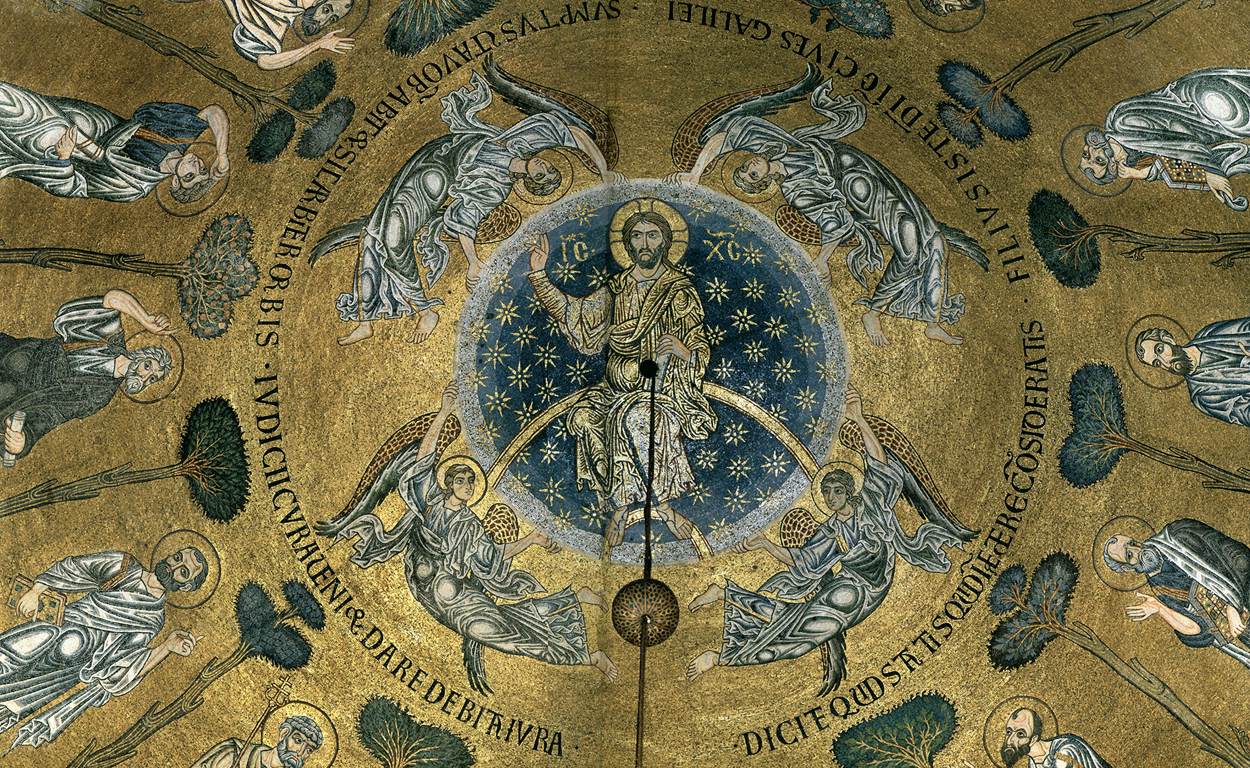 |
| Ceiling of St. Mark's in Venice. |
The Mattins readings from the Octave of the Ascension continue the Johannine theme of Christ's illumination of every individual heart. A few days ago 1 John 4 was read at the first nocturne: "Dearly beloved, let us love one another, for charity is of God. And every one that loveth, is born of God, and knoweth God. He that loveth not, knoweth not God: for God is charity." If one has not love, one has not received God, Who is in His essence Love. To love another is, according to Aquinas, to will the good of another. The social nature of the Godhead, the Three Divine Persons, necessitates that God is love and nothing else. God is infinitely simple in this. To receive God the faithful receive His love and must pass it on a Christ did. "He that abideth in charity abideth in God," concludes the lesson.
The following day's lesson, the second Johannine epistle, warns that those who do not receive God walk not in the commandments of God and are not to be received by the believer. The love and light of Christ are offered to everyone who enters the world, whether we see it explicitly or not. At the Mass for the feast all the candles in the church are traditionally lit from the Paschal candle, which is extinguished after the Gospel; in more liturgically correct Greek churches—ones not subject to the Dallas county fire marshal—all fires in the church for the next year are lit from the Paschal fire; the light of Christ, once visible in the human person of Christ, now lives on in the Church. St. Leo taught in his second sermon on the Ascension that "our Redeemer’s visible presence has passed into the sacraments. Our faith is nobler and stronger because sight has been replaced by a doctrine whose authority is accepted by believing hearts, enlightened from on high."
The Ascension octave is not so much concerned with the fact that Christ has visibly gone away from the Church, but with what He has spiritually left behind in individuals and in the universal Church, which is fortified by the love of its communion. Lest we doubt, St. Paul wrote to the Ephesian Church:
"I therefore, a prisoner in the Lord, beseech you that you walk worthy of the vocation in which you are called, with all humility and mildness, with patience, supporting one another in charity. Careful to keep the unity of the Spirit in the bond of peace. One body and one Spirit; as you are called in one hope of your calling. One Lord, one faith, one baptism. One God and Father of all, who is above all, and through all, and in us all. But to every one of us is given grace, according to the measure of the giving of Christ. Wherefore he saith: Ascending on high, he led captivity captive; he gave gifts to men." (Mattins of the octave day)
No comments:
Post a Comment